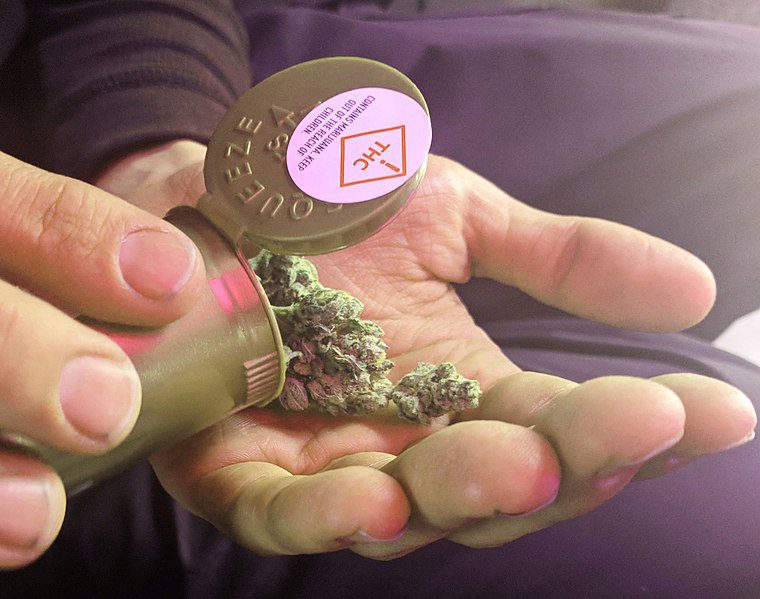Wins and Losses for State Referendums to Legalize Weed and Psychedelics
Equity, record expungement in focus as Maryland, Missouri and Colorado all approved ballot initiatives on Tuesday, while efforts to legalize marijuana failed in three other states.
| November 9, 2022

Drug policy reformers saw mixed results on Tuesday with victories in three states, and rejected legalization efforts in three others.
Voters in Maryland and Missouri supported proposals to allow for the regulated sale of marijuana for non-medical purposes, joining 19 other U.S. states that have already done so. However, similar proposals in Arkansas, North Dakota and South Dakota all were shot down by comfortable margins.
Also, ten years to the week since Colorado and Oregon became the first two states to legalize recreational pot, Colorado voters are poised to approve a measure that removes criminal penalties for use, possession and home-grow of psilocybin (“magic mushrooms”) and some other psychoactive substances. Oregon went first on this front, passing a ballot measure decriminalizing those substances in 2020.
“The more public dialogue there is on drug policy issues, the more sensible the policy outcomes are,” said Mason Tvert, a policy expert and industry advocate who co-directed Colorado’s landmark 2012 campaign to legalize non-medical cannabis use.
“As we saw in North Dakota, South Dakota and Arkansas, there’s still a lot of work to be done. Most people alive right now have lived the vast majority of their lives in a world where cannabis was entirely illegal, and where they were hearing anti-cannabis propaganda. It’s not surprising that there are still voters with concerns. … But the writing’s on the wall.”
Underscoring Tvert’s point is the fact that even President Joe Biden, who has been a dedicated soldier in America’s war on drugs, is coming around. Last month he ordered a federal review of marijuana’s classification as a “Schedule 1” substance, defined as having “no currently accepted medical use and a high potential for abuse,” and he pardoned thousands of people convicted federally and in the District of Columbia for marijuana possession.
The marijuana map is diversifying rapidly in the U.S., as the issue is no longer a project only of progressive advocates for drug policy reform. Missouri, which approved its cannabis measure by six percentage points as of Wednesday morning, went for Donald Trump by at least 15 points in the 2020 presidential election. Maryland, which went for Biden by 33 points and approved its cannabis measure by about 30 points on Tuesday, was the bluest state in the country that had yet to legalize recreational marijuana.
The Missouri and Maryland measures were the only two of Tuesday’s five state-level marijuana initiatives to allow for record expungement by people previously convicted of marijuana-related activities that have now been legalized by voters. These states will now automatically expunge records for certain people, and make others fill out petitions. Missouri’s approach to prior convictions has been especially controversial, as some reformers fear it won’t be as effective in practice as on paper. The chair of the Legislative Black Caucus, plus some prominent cannabis advocates, came out against the ballot measure.
It’s relatively new that marijuana ballot measures would take this issue on at all. A decade ago, the reformist initiatives were focused squarely on the question of whether or not to legalize, and left questions of social equity, record expungement, banking and more for later on.
“What’s happening now is there’s a far more detailed discussion taking place,” Tvert said. “There’s this growing sense that it’s inevitable that it will be legal, and so what should the details be?”
The two Dakotas took opposite paths to the same result this year. North Dakotans overwhelmingly rejected legal marijuana just four years ago, voting down a measure that, unlike this year’s, would have allowed for some record expungement. The previous North Dakota measure lost by 19 percentage points, while this year’s was losing by just 10 as of Wednesday morning.
Fifty-four percent of South Dakota voters supported legal marijuana just two years ago, but after a lawsuit championed by Republican Governor Kristi Noem, who won reelection Tuesday, the state supreme court invalidated that measure. Given a chance to vote again on the issue, South Dakotans rejected it by a six-point margin.
The Arkansas measure looked little like the other four on the ballot this year, prohibiting home-grow of marijuana plants and placing a hard cap on cultivation and dispensary permits. More exclusive markets can perpetuate race and class disparity in who has access to the substance, and who is policed over it.
Market exclusivity was of chief concern to many who opposed Colorado’s ballot measure on psychedelics. Among these opponents were some of the organizers who pushed successfully for a 2019 Denver reform to decriminalize psilocybin mushrooms. They argued this year’s statewide measure, which allows for sale of approved psychedelics only by licensed providers, will benefit a small group of profit-seeking interests. “It’s opening the floodgates for corporations to come to Colorado to open their bougie life and healing centers,” one advocate who worked on the 2019 effort told The Denver Post.

